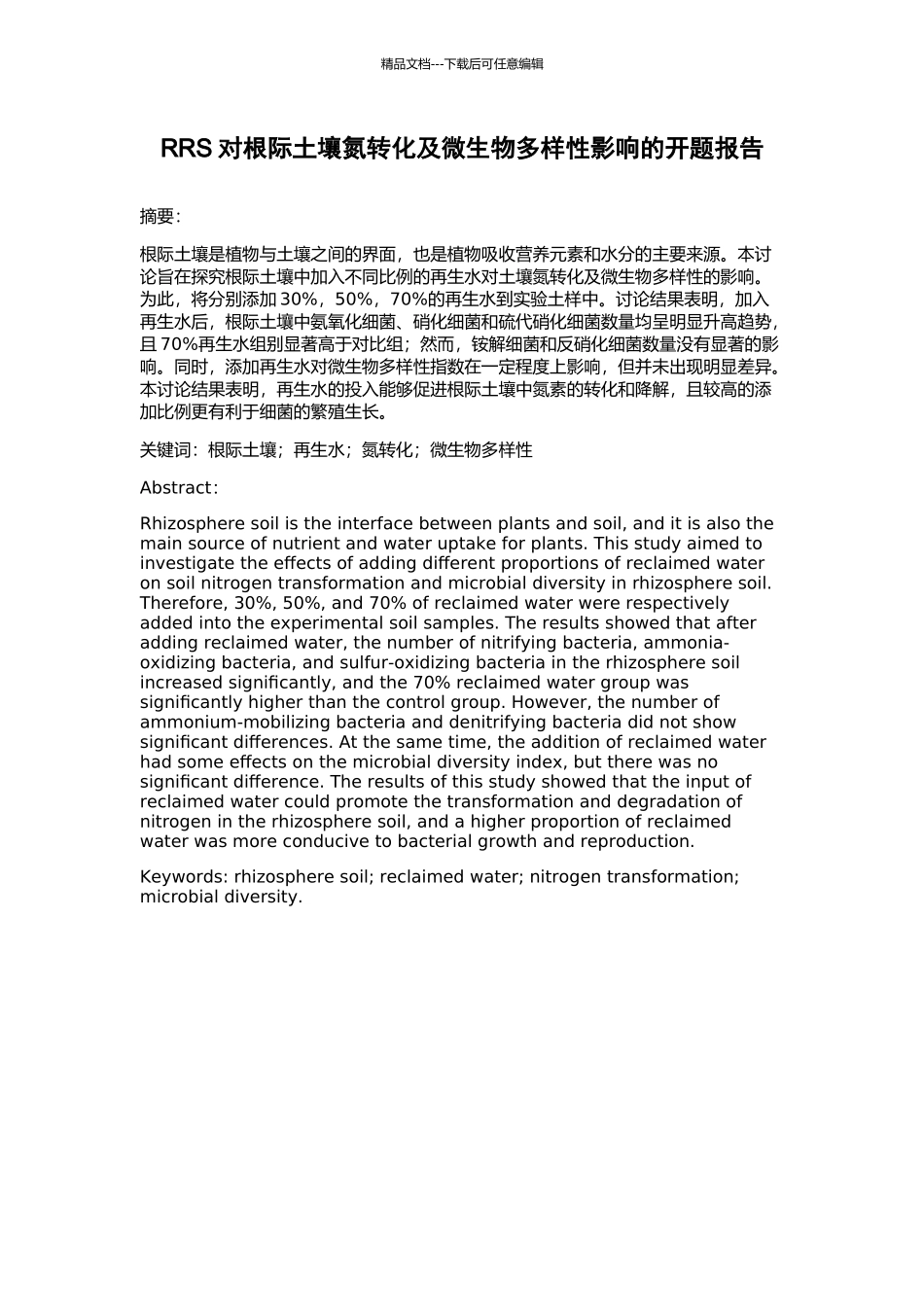精品文档---下载后可任意编辑RRS 对根际土壤氮转化及微生物多样性影响的开题报告摘要:根际土壤是植物与土壤之间的界面,也是植物吸收营养元素和水分的主要来源。本讨论旨在探究根际土壤中加入不同比例的再生水对土壤氮转化及微生物多样性的影响。为此,将分别添加 30%,50%,70%的再生水到实验土样中。讨论结果表明,加入再生水后,根际土壤中氨氧化细菌、硝化细菌和硫代硝化细菌数量均呈明显升高趋势,且 70%再生水组别显著高于对比组;然而,铵解细菌和反硝化细菌数量没有显著的影响。同时,添加再生水对微生物多样性指数在一定程度上影响,但并未出现明显差异。本讨论结果表明,再生水的投入能够促进根际土壤中氮素的转化和降解,且较高的添加比例更有利于细菌的繁殖生长。关键词:根际土壤;再生水;氮转化;微生物多样性Abstract:Rhizosphere soil is the interface between plants and soil, and it is also the main source of nutrient and water uptake for plants. This study aimed to investigate the effects of adding different proportions of reclaimed water on soil nitrogen transformation and microbial diversity in rhizosphere soil. Therefore, 30%, 50%, and 70% of reclaimed water were respectively added into the experimental soil samples. The results showed that after adding reclaimed water, the number of nitrifying bacteria, ammonia-oxidizing bacteria, and sulfur-oxidizing bacteria in the rhizosphere soil increased significantly, and the 70% reclaimed water group was significantly higher than the control group. However, the number of ammonium-mobilizing bacteria and denitrifying bacteria did not show significant differences. At the same time, the addition of reclaimed water had some effects on the microbial diversity index, but there was no significant difference. The results of this study showed that the input of reclaimed water could promote the transformation and degradation of nitrogen in the rhizosphere soil, and a higher proportion of reclaimed water was more conducive to bacterial growth and reproduction.Keywords: rhizosphere soil; reclaimed water; nitrogen transformation; microbial diversity.
